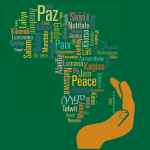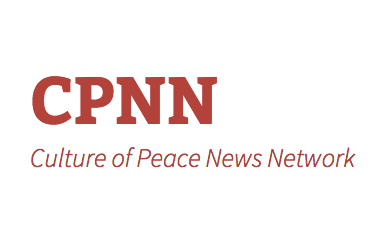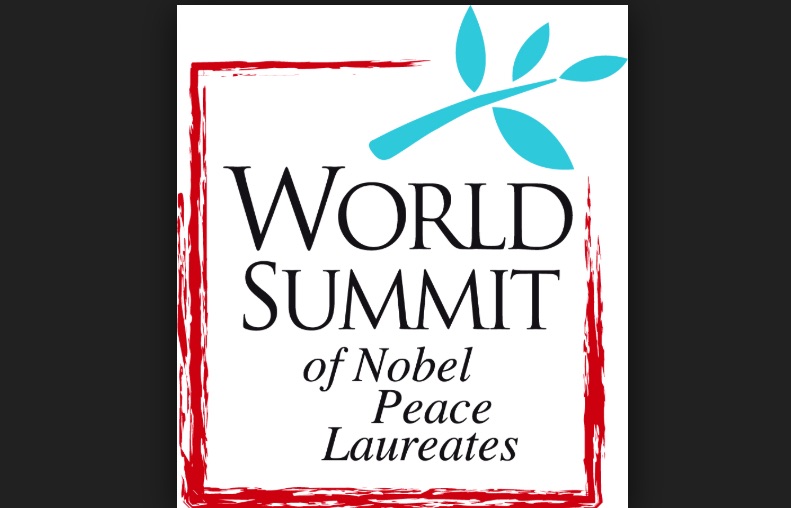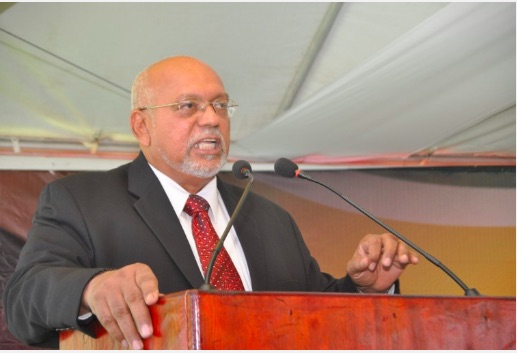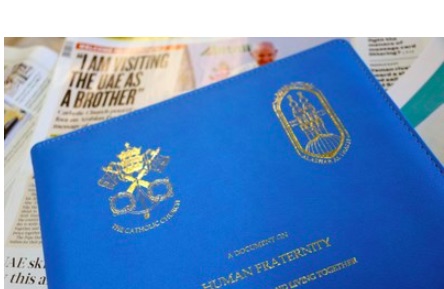LEADERSHIP FOR PEACE
In a time of bad news and confusion, we seek those who can lead us towards a future of hope and stability. Here are some good examples of leadership that we have cited recently in CPNN.
Africa:
Following in the footsteps of Nelson Mandela, and now including his widow Graça Machel as deputy chair, the Elders continue to give us good leadership. Most recently, at their biannual board meeting in Addis Ababa, they met with the Ethiopian Minister of Health and workers at a health center, where they discussed the country’s efforts to achieve Universal Health Coverage. As expressed by Graca Machel, “Health is a human right, and health workers are human rights champions. I applaud the Ethiopian Government’s commitment to delivering free primary care services at a community level, and urge them to commit further public funds to the health budget to reach this goal.”
The Prime Minister of Ethiopia, Abiy Ahmed Ali, has been awarded the Félix Houphouët-Boigny – UNESCO Peace Prize for his role as the instigator of a peace agreement between the Federal Democratic Republic of Ethiopia and Eritrea. See the recent CPNN articles about this agreement.
The Nobel Women’s Initiative was hosted in Monrovia, Liberia by Nobel peace laureate, Leymah Gbowee, and the Gbowee Peace Foundation Africa for a groundbreaking summit of Emerging Feminist Voices for Peace. The five Nobel Peace Laureates present (Leymah Gbowee, Shirin Ebadi, Jody Wiliams, Rigoberta Menchú Tum and Tawakkol Karman) shared some of their experience and offered advice for young, ’emerging’ feminist leaders. “The overarching theme was that we (women) are powerful and worthy; that we must claim our space, we must use our voice and we must not ask for permission to do so.”
The youth of Africa continue to mobilize for peace. The National Co-ordination in Gabon of the Panafrican Youth Network for the Culture of Peace (PAYNCoP,) has recently unveiled its roadmap of actions to be carried out over the next two years. The action plan provides for four strategic axes, including the popularization of PAYNCoP, the promotion of a culture of peace, the appropriation of Resolution 2250 (youth, peace and security) and the transformation of PAYNCoP into a social enterprise .
Latin America:
21 Nobel Peace Laureates Have Confirmed Attendance at the 17th World Summit of Nobel Peace Laureates titled: “Leave Your Mark for Peace” to take place in in Mérida, México. This year’s program will focus on both the Mexican legacy and the nation’s involvement in the global peacebuilding process. The program will engage civil society and youth from throughout the world by providing them the tools and strategies needed to achieve peace at the local and global levels.
In the face of the neo-colonial threats of the United States and its allies against Venezuela, the fomer President of Guyana, Donald Ramotar, has warned that “Any action that could lead to the forceful overthrow of Maduro’s government would renew the culture of military coups and bloody dictatorship in Latin America, reminiscent of the 1960’s and 70’s. . . . The greatest contribution that external intervention can play is to encourage democratic solutions and promote political negotiations and dialogue, for a peaceful settlement. Any other course, such as economic sanctions, will only worsen the situation and lead to bloodshed and violence. Latin America and the Caribbean need a culture of peace.”
North America:
Although the government and the mass media of the United States are not providing good leadership, there are individuals who are (or have) done so. Richard Falk, who served as the UN Special Rapporteur on Occupied Palestine during the period between 2008 and 2014, explains in a recent blog why he cannot abandon his long-standing commitment to take controversial public positions, such as his defense of the human rights of the Palestinian people, his objection to the threats against Iran and his defense of the whistle-blowing of Julian Assange.
Recently we lost a great peace activist of the United States, Michael True. Mike was a tireless advocate of people power. He believed deeply in the capacity of ordinary folk to effect social change, and expressed that conviction in his many books, lectures, and personal support for a myriad of campaigns, including the Peace and Justice Studies Association and the International Peace Research Association. When the UN came out with its Culture of Peace documents, he was ecstatic, because finally an international body recognized what he had known all along, that individual initiative, nonviolent direct action, and people power matter.
Europe:
Religious leaders are working for world peace. In Geneva, the conference on ‘Promoting Peace Together’ Promoting Human Fraternity and Harmonious Co-existence through Dialogue was sponsored by two of the largest Christian organizations, the World Council of Churches and the Vatican Pontifical Council for Interreligious Dialogue. The conference presented their document “Education for Peace in a Multi-religious World: A Christian Perspective”. It also discussed the document ‘Human Fraternity for World Peace and Living Together’ jointly signed by Pope Francis and the Grand Imam of Al-Azhar in Abu Dhabi in February, 2019.
East Asia:
And religious leaders are working specifically for peace in Korea. South Korean Cardinal Andrew Yeom Soo-jung believes that permanent peace is within sight on the Korean Peninsula. He made this statement in a keynote speech at the 2019 Korean Peninsula Peace-sharing Forum hosted by the National Reconciliation Committee of Seoul Archdiocese and sponsored by the Ministry of Culture, Sports and Tourism at the Catholic University of Korea on May 18.
Globally:
As we have previously reported, students around the world have taken the leadership in the fight to save the planet from global warming. The recent strike on May 24 is said to involved over a million students, and we show their photos from the Philippines, Germany, Syria, South Korea, New Zealand, India, Italy, Uganda, Ireland, USA and Sweden as well as links to photos from Chile, Mexico and Brazil.
It should not be surprising that the leadership we need comes especially from the sectors that have been ignored and oppressed by the culture of war,: women, youth and the continents that were victims of colonialism and continue to be exploited by neo-colonialism, Africa and Latin America.
| FREE FLOW OF INFORMATION
21 Nobel Peace Laureates Have Confirmed Attendance at the 17th World Summit of Nobel Peace Laureates |
SUSTAINABLE DEVELOPMENT
Youth for climate: 130 scientists support the youth climate strike |
WOMEN’S EQUALITY | EDUCATION FOR PEACE
PAYNCOP Gabon Presents its Roadmap to the President of the National Assembly |
| DISARMAMENT AND SECURITY
Latin America and the Caribbean need a culture of peace |
HUMAN RIGHTS
The Global Campaign for the Prevention of Child Marriage |
TOLERANCE AND SOLIDARITY
Geneva: Conference on ‘Promoting Peace Together’ Promoting Human Fraternity and Harmonious Co-existence through Dialogue |
DEMOCRATIC PARTICIPATION
Spain: What a city of peace should be like, according to youngsters in Barcelona |
